
Franklin Rosemont (1943–2009) was an American poet, artist, historian, street speaker, and co-founder of the Chicago Surrealist Group. Over four decades, Franklin produced a body of work, of declarations, manifestos, poetry, collage, hidden histories, and other interventions.

Penelope Rosemont is a visual artist, writer, publisher, and social activist who attended Lake Forest College. She has been a participant in the Surrealist Movement since 1965. With Franklin Rosemont, Bernard Marszalek, Robert Green and Tor Faegre, she established the Chicago Surrealist Group in 1966. She was in 1964-1966 a member of the Industrial Workers of the World (IWW), commonly known as the Wobblies, and was part of the national staff of Students for a Democratic Society (SDS) in 1967-68. Her influences include Andre Breton and Guy Debord of the Situationist International, Emma Goldman and Lucy Parsons.

The Proletarian Party of America (PPA) was a small communist political party in the United States, originating in 1920 and terminated in 1971. Originally an offshoot of the Communist Party of America, the group maintained an independent existence for over five decades. It is best remembered for carrying forward Charles H. Kerr & Co., the oldest publisher of Marxist books in America.

Charles Hope Kerr, was an American publisher and editor. A son of abolitionists, he was a vegetarian and Unitarian in 1886 when he established Charles H. Kerr & Co. in Chicago. His publishing career is noted for his views' leftward progression toward socialism and support for the Industrial Workers of the World.

John Keracher was a Scottish-born American Marxist politician who founded the Proletarian Party of America in 1920.

Charles Henry Vail was an American Universalist clergyman and Christian socialist political activist and writer. Vail is best remembered as the first National Organizer of the Socialist Party of America and as a candidate of that party for Governor of New Jersey.

Socialism: Utopian and Scientific is a short book first published in 1880 by German-born socialist Friedrich Engels. The work was primarily extracted from a longer polemic work published in 1878, Anti-Dühring. It first appeared in the French language.

Gerhard Ernest Untermann, Sr. (1864–1956) was a German-American seaman, socialist author, translator, newspaper editor. In his later life he was Director of the old Washington Park Zoo in Milwaukee, a geologist, fossil hunter, and artist.

Frank Bohn was an advocate of industrial unionism who was a founding member of the Industrial Workers of the World. From 1906 to 1908 he was the National Secretary of the Socialist Labor Party of America, before leaving to join forces with the rival Socialist Party of America. After World War I his politics became increasingly nationalistic and he left the labor movement altogether.
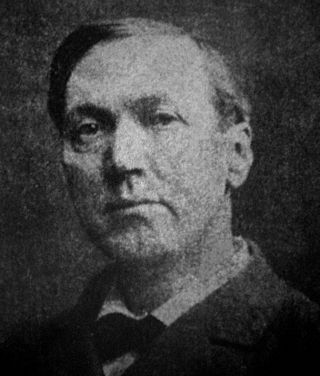
Hermon Franklin Titus (1852–1931) was an American socialist activist and newspaper publisher. Originally a Baptist minister before becoming a medical doctor, Titus is best remembered as a factional leader of the Washington state affiliate of the Socialist Party of America (SPA) during the first decade of the 20th century and as editor of The Socialist, one of the most-widely circulated radical newspapers of that period. Titus led a party split from the Socialist Party of Washington in 1909 and helped found a short-lived organization called the Wage Workers Party. His paper failed with that organization and he died in self-chosen obscurity in New York City, a medical doctor working in a low paying service job.
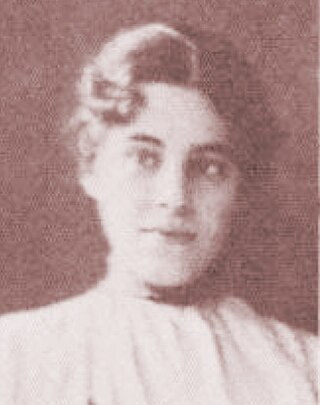
Mary Edna Tobias Marcy was an American socialist author, pamphleteer, poet, and magazine editor. She is best remembered for her muckraking series of magazine articles on the meat industry, "Letters of a Pork Packer's Stenographer," as author of a widely translated socialist propaganda pamphlet regarded as a classic of the genre, Shop Talks on Economics, and as an assistant editor of the International Socialist Review, one of the most influential American socialist magazines of the first two decades of the 20th century.

The International Socialist Review was a monthly magazine published in Chicago, Illinois by Charles H. Kerr & Co. from 1900 until 1918. The magazine was chiefly a Marxist theoretical journal during its first years under the editorship of A.M. Simons. Beginning in 1908 the publication took a turn to the left with publisher Charles H. Kerr taking over the main editorial task. The later Review featured heavy use of photographic illustration on glossy paper and mixed news of the contemporary labor movement with its typical theoretical fare.
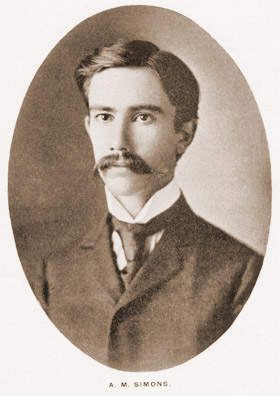
Algie Martin Simons (1870–1950) was an American socialist journalist, newspaper editor, and political activist, best remembered as the editor of The International Socialist Review for nearly a decade. Originally an adherent of the Socialist Labor Party of America and a founding member of the Socialist Party of America, Simons' political views became increasingly conservative over time, leading him to be appointed on a pro-war "labor delegation" to the government of revolutionary Russia headed by Alexander Kerensky in 1917. Simons was a bitter opponent of the communist regime established by Lenin in November 1917 and in later years became an active supporter of the Republican Party.
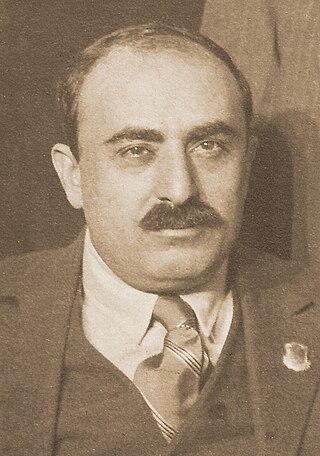
Alexander "Alex" Trachtenberg was an American publisher of radical political books and pamphlets, founder and manager of International Publishers of New York. He was a longtime activist in the Socialist Party of America and later in the Communist Party USA. For more than eight decades, his International Publishers was a part of the publishing arm of the American communist movement. He served as a member of the CPUSA's Central Control Committee. During the period of McCarthyism in America, Trachtenberg was twice subject to prosecution and convicted under the Smith Act; the convictions were overturned, the first by recanting of a government witness and the second by a US Circuit Court of Appeals decision in 1958.

International Publishers is a book publishing company based in New York City, specializing in Marxist works of economics, political science, and history.

May Wood Simons was an American socialist writer, editor, teacher and economist. She developed nationally acclaimed programs for the assimilation of immigrants and the political education of women, and published several notable works, including "Women and the Social Problem" and "Outline of Civics". She and her husband were members of the Socialist Labor Party and she became a significant figure in the socialist movement as a lecturer and assistant editor of the Chicago Party Socialist (1907-1910). Simons was the translator of several books by German-speaking European Marxists, including Wilhelm Liebknecht and Karl Kautsky. Simons married fellow socialist Algie Martin Simons in 1897.
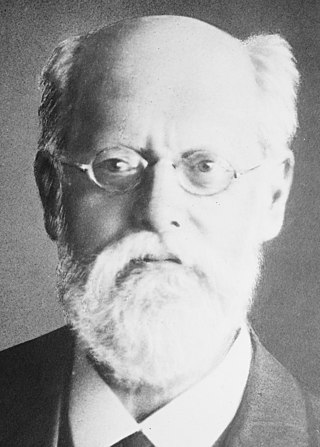
Karl Johann Kautsky was a Czech-Austrian philosopher, journalist, and Marxist theorist. A leading theorist of the Social Democratic Party of Germany (SPD) and the Second International, Kautsky advocated orthodox Marxism, which emphasized the scientific, materialist, and determinist character of Karl Marx's work. This interpretation dominated European Marxism for two decades, from the death of Friedrich Engels in 1895 to the outbreak of World War I in 1914.
A robust tradition of Christian socialism in Utah developed and flourished in the first part of the 20th century, playing an important part in the development and expression of radicalism in Utah. Part of a larger, nationwide movement in many American Protestant churches, the Christian socialist movement was particularly strong in Utah, where dedicated Christian socialist ministers were fierce advocates for the miners laboring in the Mountain states.

The Western Workman's Co-operative Publishing Company, established in 1907, was a Finnish-language socialist newspaper and book publisher located in Astoria, Oregon, on the Pacific coast of the United States of America. The firm produced the newspapers Toveri, Toveritar, periodicals designed for young readers, as well as books.

The Maximalist Italian Socialist Party or PSIm, was the residual part of the Italian Socialist Party in exile following the split that occurred during the first phases of the Socialist Convention of Grenoble, held on 16 March 1930, by Pietro Nenni and the fusionist fraction.





















